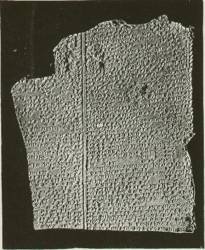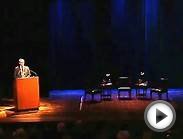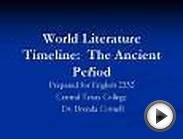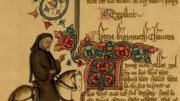
Originality in Ancient Literature
Most early works were written in the poetical metre which the writer had heard repeated over time and, therefore, the dating of such pieces as the Enuma Elish or the Odyssey is difficult in that they were finally recorded in writing many years after their oral composition. The great value which modern-day readers and critics place on 'originality’ in literature was unknown to ancient people. The very idea of according a work of the imagination of an individual with any degree of respect would never have occurred to anyone of the ancient world. Stories were re-tellings of the feats of great heroes, of the gods, the goddesses, or of creation (as in Hesiod and Homer). So great was the respect for what today would be called 'non-fiction’, that Geoffrey of Monmouth (1100-1155 CE) claimed his famous (which he largely made up) was actually a translation from an earlier text he had 'discovered’ and Sir Thomas Malory (1405-1471 CE) famed as the author of the Morte D’Arthur, denied any original contributions to the work he compiled from earlier authors, even though today it is clear that he added much to the source material he drew from. This literary tradition of ascribing an original work to earlier, seemingly-authoritative, sources is famously exemplified in the gospels of the Christian New Testament in that the gospels of Matthew, Mark, Luke, and John, understood by many believers to be eye-witness accounts of the ministry of Jesus, were written much later by unknown authors who chose names associated with the early church.
Literature encompasses forms such as poetry, drama, prose, folklore, epic tale, personal narrative, poetry, history, biography, satire, philosophical dialogues, essays, legends and myths, among others. Plato’s Dialogues, while not the first to combine philosophical themes with dramatic form, were the first to make drama work in the cause of philosophical inquiry. Later writers drew on these earlier works for inspiration (as Virgil did in composing his Aeneid, based on Homer’s Iliad and Odyssey, between 30-18 BCE) and this tradition of borrowing lasted until the time of Shakespeare (1564-1616 CE) and continues in the present day.
Source: www.ancient.eu
|
History: Ancient History in 50 Events: From Ancient Civilizations to the Fall of the Roman Empire (History Books, History of the World, Ancient Rome) (History in 50 Events Series Book 9) eBooks () |
You might also like:



Related posts:























